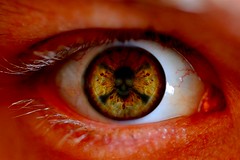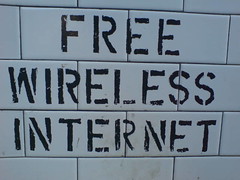 The following is derived from my workshop on Information Security at PacINET 2007. My slides are available on SlideShare.
The following is derived from my workshop on Information Security at PacINET 2007. My slides are available on SlideShare.
Historically speaking, information security is not new. There is evidence of people protecting and, of course, attacking information, information systems, and the flow of information in all cultures as far back as there is a written record. If we take early missionary accounts in Fiji, for example, we find that access to spiritual information was a closely protected monopoly of a priestly class. The confidentiality, integrity, and availability of information from the world beyond – which included extremely valuable information about the weather, the future, the correct course of action, the afterlife, and many other things – was strictly limited to established priests who held a close relationship with the local chief.
However, even pre-European-contact Fiji had its hackers. Living at the fringes of Vitian society were (and still are in remote areas) medicine men and witches who could also tap into spiritual information. Their status as relative social outsiders made them either an enemy or a counter-balance to the priestly information monopoly. Some witches and medicine men could even hack (I mean, influence) the spiritual world and alter the confidentiality, integrity, or availability of information available to priests by counteracting the priestly influence on the divine or by uttering counter-prophecies.
In European culture, information security has a solidly military origin dating back, at least, to Julius Caesar's encrypted military communications. What is commonly termed information security today is really the defensive aspect of information warfare – that is, the part of information warfare that is concerned with protecting information assets.
Of course, with the rise of the personal computer and the Internet in more recent history, information security has become much more than a military concern. With the growth of the so-called information economy has come an equal and predicable growth of information crime, leading to some staggering statistics including a 2005 estimate that the cost of computer crime in the USA exceeded the size of the combined economies of all the nations in the South Pacific.
I have been quoted in the past as saying that despite all of the fascinating mathematics and technology that underly modern infosec, information security is fundamentally about people. Certainly no one likes to have money stolen from them, but increasingly information security is about our privacy, our public personae, our collective identities, and even our fundamental rights. Fiji's anti-government bloggers are only able to voice their opinions due to the security mechanisms provided by their blog hosts which assure their anonymity. Whatever you think of their opinions, they are one of the few voices of opposition to Fiji's interim regime and are undoubtedly playing a role in shaping the future of Fiji and the region. Only time will tell how large or small that role is.
Still, anonymous political activists everywhere should carefully follow the recent behavior of America's Internet giants, as they are not always on your side. The most striking example is the case of the activist Shi Tao who was essentially handed over to Chinese authorities by US-based Yahoo. Yahoo, and many other international firms, have agreed to cooperate with Chinese authorities – even at the expense of their individual customers – in order to gain access to the immense Chinese market.
Information security even has a role in protecting the function of entire nations. Take the case of Estonia, a small former Soviet republic on the coast of the Baltic Sea with a population of around 1.3 million people. In May this year, Estonia moved a certain Russian war memorial to a location more desirable to Estonians, which enraged many Russian nationals living both in and out of Estonia. Soon, blogs were posting instructions on how to wage a denial of service attack against Estonian institutions, and a little while later, this attack was in full swing. Numerous government and financial sector systems across the tiny maritime nation were brought to a stand still and international experts had to be flown in to curb what some described as an Internet riot. Should this story concern other, perhaps more tropical, small maritime nations who are rushing to get their citizens and institutions online? The answer is absolutely “yes”.
Still, one of the largest challenges facing information security today is the heady combination of social engineering and user ignorance. Many computer criminals have discovered that hacking just does not pay off as well as simply fooling people into giving up either their money (to help move funds out of Nigeria to help a poor window, for example) or enough information to get to their money. Wide spread user naiveté is widespread in the South Pacific. I have never received so many chain emails from friends and acquaintances since I came to Fiji – and I was part of the first wave of naive Internet users in Canada!
Technology policy makers in the South Pacific should indeed be worried by all of this. By joining the global information economy, the region is embarking on an enterprise that is as fraught with danger and as ripe with rewards as the great Pacific migrations of days past. Fortunately, it is not necessary to sail the seas blind – technology policy navigators need only look across the ocean to the experiences of other more wired nations to see what problems to expect and which solutions will be effective.
Photo by: bhikku










